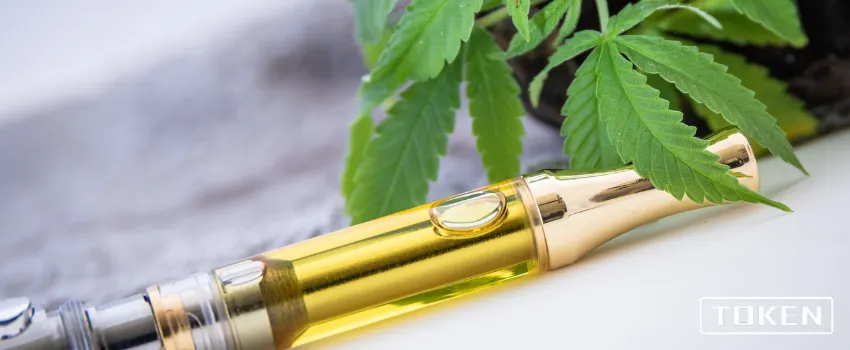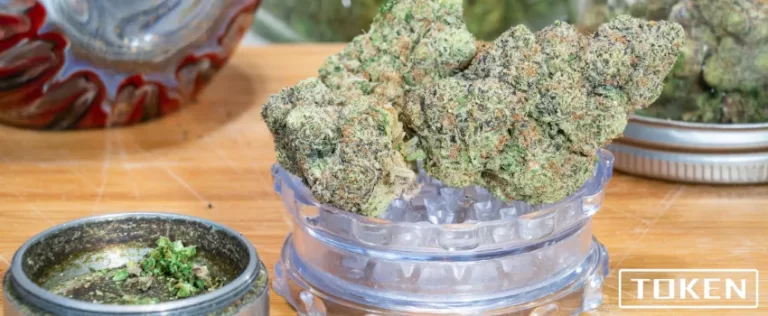
THC Gummies Explained: An Ultimate Guide
THC gummies have become a popular way to consume cannabis. They offer a convenient and tasty alternative to other forms of THC consumption. But have

In the world of vaping, understanding the diverse compounds and their effects is crucial for both novices and seasoned enthusiasts. As the vaping culture has expanded, so has the range of compounds available for consumption, with THC vape and HHC vape emerging as prominent players.
While THC has been a familiar name in recreational and medicinal cannabis circles for years, HHC is a relatively new entrant, sparking curiosity and numerous questions.
As we delve deeper into this topic, we aim to demystify the primary differences between these two compounds. We’ll also provide a clear foundation for those navigating the sometimes hazy water of the vaping landscape.
Tetrahydrocannabinol, commonly known as THC, is the most recognized compound in cannabis, responsible for the plant’s famed psychoactive effects. But what exactly is THC, and how does it influence the human psyche?
At its core, THC is one of over 100 cannabinoids found in the cannabis plant. It’s a chemical compound that interacts with the human body’s endocannabinoid system, specifically binding with the CB1 receptor, predominantly located in the brain. This interaction is the primary reason for the psychoactive effects THC induces.
Nature, in its fascinating ways, did not design THC to get humans “high.” In the cannabis plant, THC serves as a protective mechanism. It acts as a defense against herbivores, who might be deterred from consuming the plant due to the compound’s psychoactive effects. Additionally, THC protects the plant from UV rays, courtesy of its light-absorbing properties.
In the diverse constellation of cannabinoids, while THC has long been the brightest star, a new luminary known as HHC is capturing attention. But what exactly is HHC, and how does it differentiate itself from its more renowned counterpart, THC?
Hexahydrocannabinol, or HHC, is a hydrogenated form of THC. In simpler terms, this means that the chemical structure of HHC has been slightly modified, with extra hydrogen atoms added. This alteration doesn’t just make HHC unique on a molecular level; it also influences its effects on the human body.
Unlike THC, which is naturally abundant in the cannabis plant, HHC isn’t as commonly found in nature. Instead, it’s often produced through a process of hydrogenating THC. This method transforms the familiar compound into its lesser-known counterpart, which holds promise for diverse medical and recreational applications.
With the rising popularity of derived cannabis products, one must understand the safety considerations around vaping with HHC. Studies on the safety of using HHC have been limited due to legal restrictions.
Still, evidence suggests that significant risks are associated with inhaling heated cannabinoids, such as those found in vape pens. The heating process can create toxic compounds that are known to be carcinogenic or may cause respiratory irritation and inflammation.
Moreover, there is some concern that specific components used in HHC vape pens may react with other chemicals in cannabis plants, leading to an increased risk for toxicity. There is also a potential risk of addiction and dependence because of the high potency of cannabinoids found in HHC vapes. Overall, it is essential to consider all possible risks before engaging in vaping with HHC products.
The chemical makeup of HHC and THC are distinct, with the former being a synthetic cannabinoid with no psychoactive properties. Simultaneously, the latter is responsible for producing euphoric effects due to its ability to interact with the endocannabinoid system.
However, despite this difference in their respective chemical compositions, both substances have been studied extensively for their potential medical applications. Although there has been much debate about the safety of THC-based products, research into HHC indicates that it may provide some therapeutic benefits without the associated risks.
The chemical makeup of an HHC and a THC vape differs critically, posing equally significant health implications. HHC is the main psychoactive component found in cannabis plants and is responsible for most of the effects of marijuana use. When vaporized, HHC produces an aerosol that contains over 100 different cannabinoids and other compounds.
On the other hand, THC is an isolated cannabinoid that typically has higher concentrations than those found naturally occurring in cannabis plants. When vaporized, it produces an aerosol composed of fewer compounds than HHC.
Both substances produce different effects when inhaled due to their varying chemical compositions. People should understand what they are vaping before using either product.
THC and HHC vape can produce different psychoactive effects, depending on the chemical composition of each substance. HHC is a non-psychoactive cannabinoid found in certain strains of cannabis plants. It does not produce any mind-altering effects when consumed, making it a popular choice for those looking for pain relief without getting high.
THC is the primary psychoactive compound found in marijuana, producing an altered mental state and euphoric sensation upon consumption. This effect makes it popular among recreational users seeking the “high” feeling associated with cannabis use. Though both compounds interact with the endocannabinoid system to provide therapeutic benefits, their distinct chemical makeup results in different psychoactive effects when inhaled through vaporization.
Recent studies have shown that cannabis vaping may provide medical benefits due to its interaction with the endocannabinoid system. Cannabinoids, such as HHC and THC, interact with cannabinoid receptors in the body, which help regulate various functions, including pain management, appetite regulation, and inflammation control.
This makes them potential therapeutic agents for treating certain conditions. THC also has anti-nausea properties, making it useful for cancer patients undergoing chemotherapy or radiation treatments.
In addition, both HHC and THC have been found to reduce muscle spasms associated with multiple sclerosis. They can also be used for managing anxiety and other mood disorders. However, further research is needed into how these compounds interact with the body on a molecular level before they can be prescribed medically.
Recent studies have shown that vaporizing hemp-derived products, such as HHC vapes, are more expensive than THC vapes due to their complex production processes. This is primarily because hemp plants require more resources and labor to cultivate and harvest than marijuana plants.
Furthermore, extracting HHC from plant material through distillation or refinement before using it in vaping devices increases production costs. Additional governmental regulations and licensing requirements also add to the cost burden on manufacturers of these products.
Comparing the potency of HHC and THC vapes can be complex, as each offers varying strength levels. Generally speaking, cannabis plants that produce HHC vaporizers have higher concentrations of CBD than those used in THC products. This means that while there may be more cannabinoids present in an HHC product, they will not produce the same psychoactive effects as THC-based vaporizers.
Additionally, the amount of active ingredients contained within an individual dose is much lower for HHC than for THC. As such, a user would need to consume more volume of an HHC vape to achieve similar results to that of a THC-based product. Ultimately, determining which type of vaporizer is stronger requires careful consideration based on individual needs and preferences.
The fundamental difference between THC and HHC lies in their chemical composition, with THC being a naturally occurring compound found in cannabis plants and HHC being synthetic. While some safety concerns are associated with vaping HHC, it is generally considered as safe as vaping THC from a health perspective.
In addition, due to its synthetic nature, even an HHC disposable vape often costs more than traditional products containing THC. Finally, while both compounds provide powerful psychoactive effects, HHC may be slightly more potent than THC, depending on the product formulation. Understanding the differences between these two compounds can help users make informed decisions when choosing vape products.
Demystifying the HHC vs. THC problem starts with the right guidance. Unravel the intricacies and find the perfect match for your vaping preferences at your nearest cannabis vape shop. Be in the know, elevate your sessions, and vape with confidence. Stop by today at THC Dispensary!

THC gummies have become a popular way to consume cannabis. They offer a convenient and tasty alternative to other forms of THC consumption. But have

There might be a time you ask, “What is the best way to store cannabis flower?” Properly storing cannabis flowers is vital to maintain their
Memberships are now available! Gain access to our exclusive perks and privileges at Smoken Token that comes with exclusive benefits.
Or, click here to exit this site.